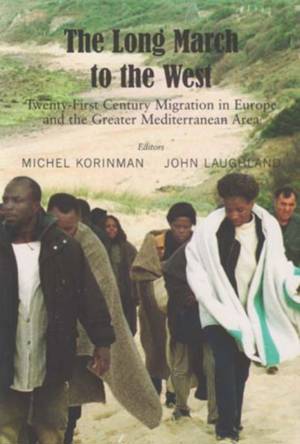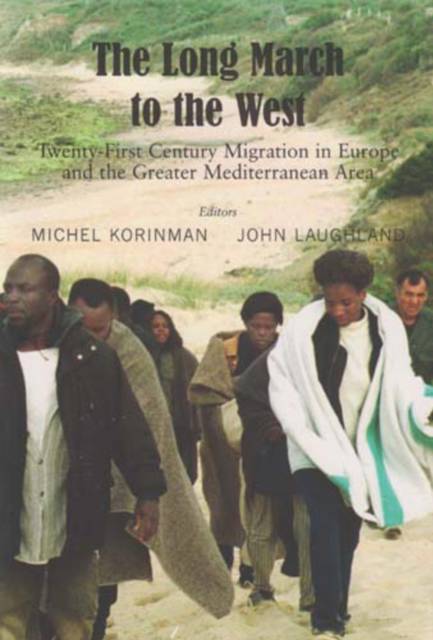
- Retrait en 2 heures
- Assortiment impressionnant
- Paiement sécurisé
- Toujours un magasin près de chez vous
- Retrait gratuit dans votre magasin Club
- 7.000.0000 titres dans notre catalogue
- Payer en toute sécurité
- Toujours un magasin près de chez vous
Long March to the West, the PB
Tweny-First Century Migration in Europe and the Greater Mediterranean Area
Michel Korinman, John Laughland
27,45 €
+ 54 points
Description
This second book in the series Geopolitical Affairs concentrates on migration in the twenty-first century. Migration will be one of the biggest issues in world geopolitics in the years to come. Huge population flows are one of the key phenomena of the contemporary world. The book addresses the following questions: --- Kofi Annan's concept of the 'globalisation of the globe' and of his idea that nation-states have had their day: do the world's major institutions share this view? What is the view of the Holy See, the United Nations High Commissioner for Refugees, and non-governmental organisations? --- The increasing problem of 'Eurabia': opinion polls in the United Kingdom, Germany, and the Netherlands show that societies are divided while politically correct ideas are imposed. Countries are in the process of disappearing. What is the relationship between established right-wing parties and nationalist right-wing parties? Will the conflict between the two be the principal political conflict in years to come? --- There is a debate in the Arab world on migration. What is the relationship between Arab Africa and Black Africa, between North and South? What is the purpose of Euro-Mediterranean summits? Is immigration an arm in the hands of the Maghreb (North Africa) and the Mashreq (the Arabic-speaking counties East of Egypt)? --- Africa itself is ever more destabilised by migratory flows. Political elites remain settled while ordinary people undertake ever more dangerous migrations in search of a better life. The Ivory Coast and Liberia are cases in point. What is the point of view of Burkina Faso, Guinea, Mali, Ghana, and Liberia on the crisis in Ivory Coast? And what about the situation in Darfur and Chad: is the refugee crisis there being manipulated for political purposes? --- Is there a conflict between East and South? Western Europe has seen immigration from Africa and Eastern Europe. What is the relationship between migrants and the Mafia, especially people traffickers? The examples of Albanians, Kosovars, and Nigerians are relevant.
Spécifications
Parties prenantes
- Auteur(s) :
- Editeur:
Contenu
- Nombre de pages :
- 425
- Langue:
- Anglais
- Collection :
- Tome:
- n° 2
Caractéristiques
- EAN:
- 9780853037811
- Date de parution :
- 30-04-07
- Format:
- Livre broché
- Format numérique:
- Trade paperback (VS)
- Dimensions :
- 146 mm x 210 mm
- Poids :
- 594 g

Seulement chez Librairie Club
+ 54 points sur votre carte client de Librairie Club
Les avis
Nous publions uniquement les avis qui respectent les conditions requises. Consultez nos conditions pour les avis.





